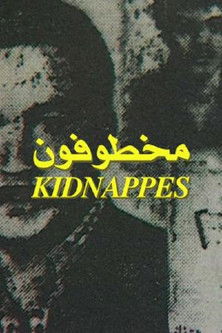Kidnapped
Genres
DocumentaryWar
OverView
“Al Makhtufun” won the 1998 Best Short Documentary Film Award at the Mediterranean Film Festival for highlighting the issue of abducted Lebanese. The film raises two major issues: The abductee’s physical absence and his spiritual presence among his family members, and the parents silently wishing his return. The documentary looks at documents kept by Wadad, a mother who decides to step outside her comfort zone and share her papers and forms when other parents would not.
Others
Budget
$--
Revenue
$--
Status
Released
Original Language
Arabic
Runtime
50 mins
Rating
0/10
Release Date
13 April 1998
Country
Lebanon
